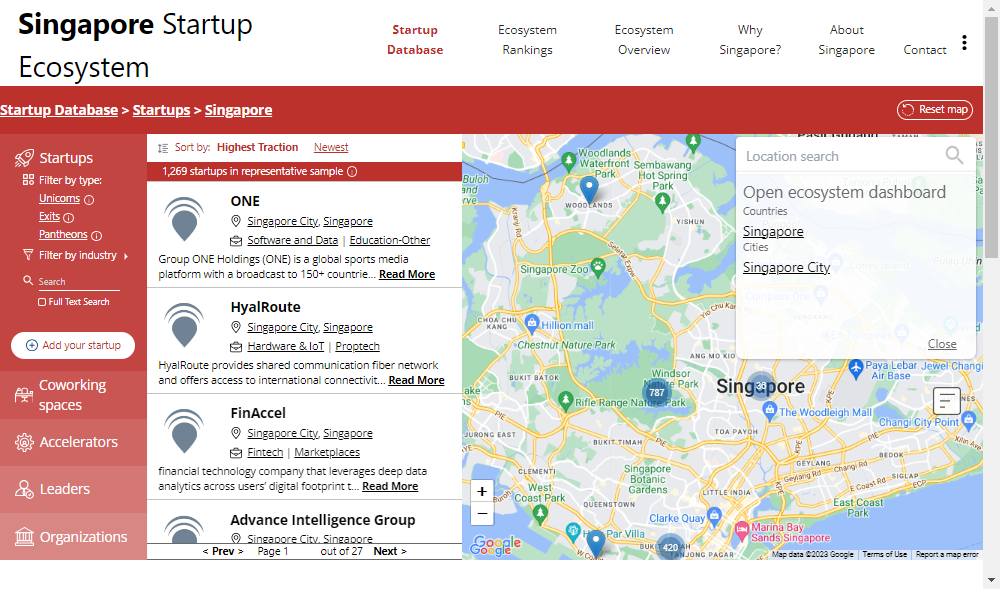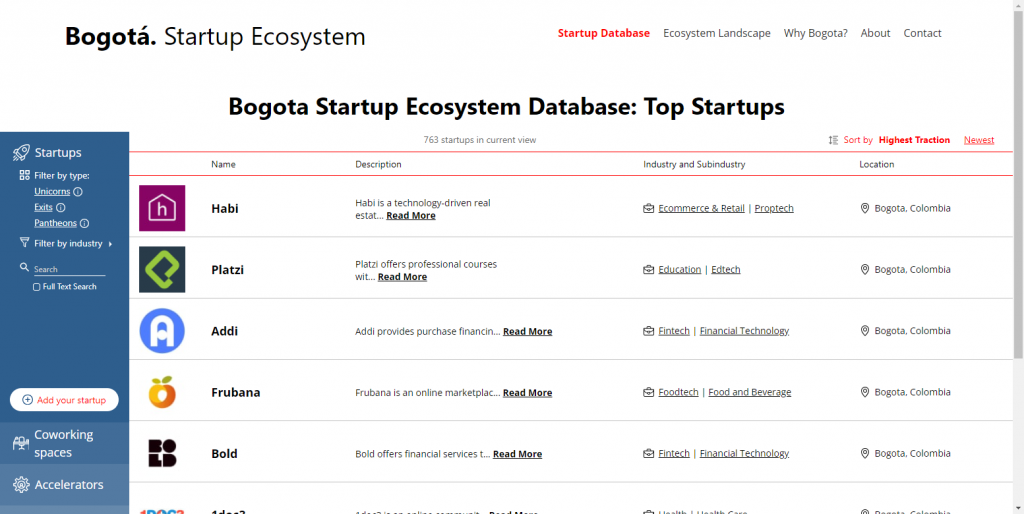Startups with a regional market focus have distinct advantages over their globally-oriented counterparts. By tailoring their offerings to specific markets and leveraging regulatory support from local governments, they can provide greater value to their customers. This trend has led to the rise of successful regional hubs that are becoming forces to be reckoned with in the startup ecosystem. In this article, we will explore the strengths of some prominent startup and innovation hubs like Singapore, Dubai, and Lagos, while also emphasizing the importance of maintaining a long-term global strategy for sustainable growth.
If you’re a company looking to onboard employees and contractors in multiple countries, Deel can be your valuable partner. Deel helps companies to onboard employees and contractors in minutes and pay them in over 150 countries. With their seamless solution, you can streamline your global operations and focus on what matters most: growing your business.
Regional Startup & Innovation Hubs: Examples of Success
Singapore, with its advantageous geographical position and pro-entrepreneurship policies, has become a prominent regional hub that attracts numerous prosperous Asian-focused startups. Its rise to prominence has coincided with the decline of Hong Kong’s startup ecosystem.
In a similar vein, Dubai has emerged as a prime destination for startups aiming to tap into the Middle Eastern market, capitalizing on its central location and conducive business environment. On the African continent, Lagos has successfully established itself as the foremost regional hub, nurturing a dynamic startup ecosystem propelled by indigenous talent and groundbreaking solutions. These regional hubs exemplify the potential for fostering innovation and entrepreneurial growth through strategic location, supportive policies, and vibrant local ecosystems.
Unclaimed Prizes and Potential
While established regional innovation hubs have seen remarkable success, there remain untapped regions across the globe that aspire to develop their own thriving startup ecosystems. Latin America, in particular, with its expanding economy and linguistic connectivity, holds tremendous potential for policymakers to cultivate a regional hub. Cities such as Mexico City, Buenos Aires, and Bogota have emerged as contenders in this race, equipped with the necessary ingredients to unlock substantial economic growth by fostering startups and promoting innovation.
Mexico City, the capital of Mexico, boasts a large population, a flourishing tech scene, and access to a vast talent pool. The city’s vibrant culture and entrepreneurial spirit have already attracted international attention, making it a potential epicenter for startups in Latin America. Similarly, Buenos Aires, the capital of Argentina, has witnessed a surge in startup activity, supported by a well-established venture capital network and a growing ecosystem of incubators and accelerators. The city’s rich cultural heritage and emerging tech talent make it an attractive destination for entrepreneurs seeking to establish their businesses in the region.
Bogota, the capital of Colombia, has also emerged as a rising star in the Latin American startup landscape. The city benefits from a strategic location, a rapidly expanding middle class, and an improving business environment. Government initiatives, such as tax incentives and regulatory reforms, further contribute to the city’s potential as a regional hub. Bogota’s commitment to fostering innovation is evident in the establishment of innovation centers, co-working spaces, and technology parks, all aimed at nurturing startups and facilitating collaboration.
The development of a robust startup ecosystem in Latin America has the potential to unlock significant economic opportunities, create job prospects, and foster technological advancements. However, it requires collaborative efforts from governments, investors, educational institutions, and the private sector to provide the necessary support and infrastructure. By leveraging the existing strengths of cities like Mexico City, Buenos Aires, and Bogota, policymakers can catalyze the growth of a thriving regional hub that nurtures entrepreneurship and propels Latin America’s position on the global innovation stage.
The Caution of Regional Strategies
While regional strategies undoubtedly provide numerous advantages, it is crucial for cities and countries to maintain a long-term global perspective. Building exceptional startup and innovation hubs requires the ability to look beyond local markets and tap into the untapped potential offered by the global stage. It is a common phenomenon for countries like China, India, and Brazil, blessed with immense domestic markets, to primarily focus inward, inadvertently missing out on the benefits that come with global expansion. By solely concentrating on their local markets, they may fail to leverage the advantages and opportunities offered by the global marketplace.
Conversely, nations such as Israel and the United Kingdom have successfully established themselves as global players by placing a strong emphasis on penetrating international markets. By prioritizing global expansion, these countries have cultivated significant economic advantages that are highly rewarding. Israel, renowned for its innovation and technological advancements, has strategically pursued global collaborations and partnerships, enabling its startups to access global markets and secure foreign investments. The United Kingdom, with its historical global ties and international business-friendly policies, has become a preferred destination for startups seeking global market access and expansion opportunities.
By striking a balance between regional strategies and a global outlook, cities and countries can optimize their startup ecosystems. Recognizing the importance of both local and global markets is essential for sustained growth and competitiveness. Regional hubs can serve as strong foundations, nurturing local talent and fostering innovation, while simultaneously aiming for global expansion and international collaborations. Embracing a global perspective opens doors to diverse markets, customer bases, and resources, providing startups with invaluable opportunities for growth, scalability, and long-term success.
Conclusion
Regional startup and innovation hubs are gaining momentum worldwide, driven by the advantages of catering to specific markets and regulatory support. Cities like Singapore, Dubai, and Lagos have already established themselves as successful regional hubs, offering valuable lessons for other regions looking to follow suit. However, it is crucial to remember that long-term global strategies should not be forsaken, as they unlock vast economic potential. Countries and cities that can strike a balance between regional focus and global ambitions will undoubtedly reap the rewards of a thriving startup ecosystem. The journey to becoming a regional hub is just the beginning; the real opportunity lies in the global market.
If you would like to benefit from global talent, Deel helps you to hire from +150 countries hassle-free.
About Us:
StartupBlink is the world’s most comprehensive startup ecosystem map and research center, working with over 100 government entities worldwide. StartupBlink’s global startup ecosystem map has tens of thousands of registered startups, coworking spaces, and accelerators, creating a robust sample of innovation globally.
Our Partners:












